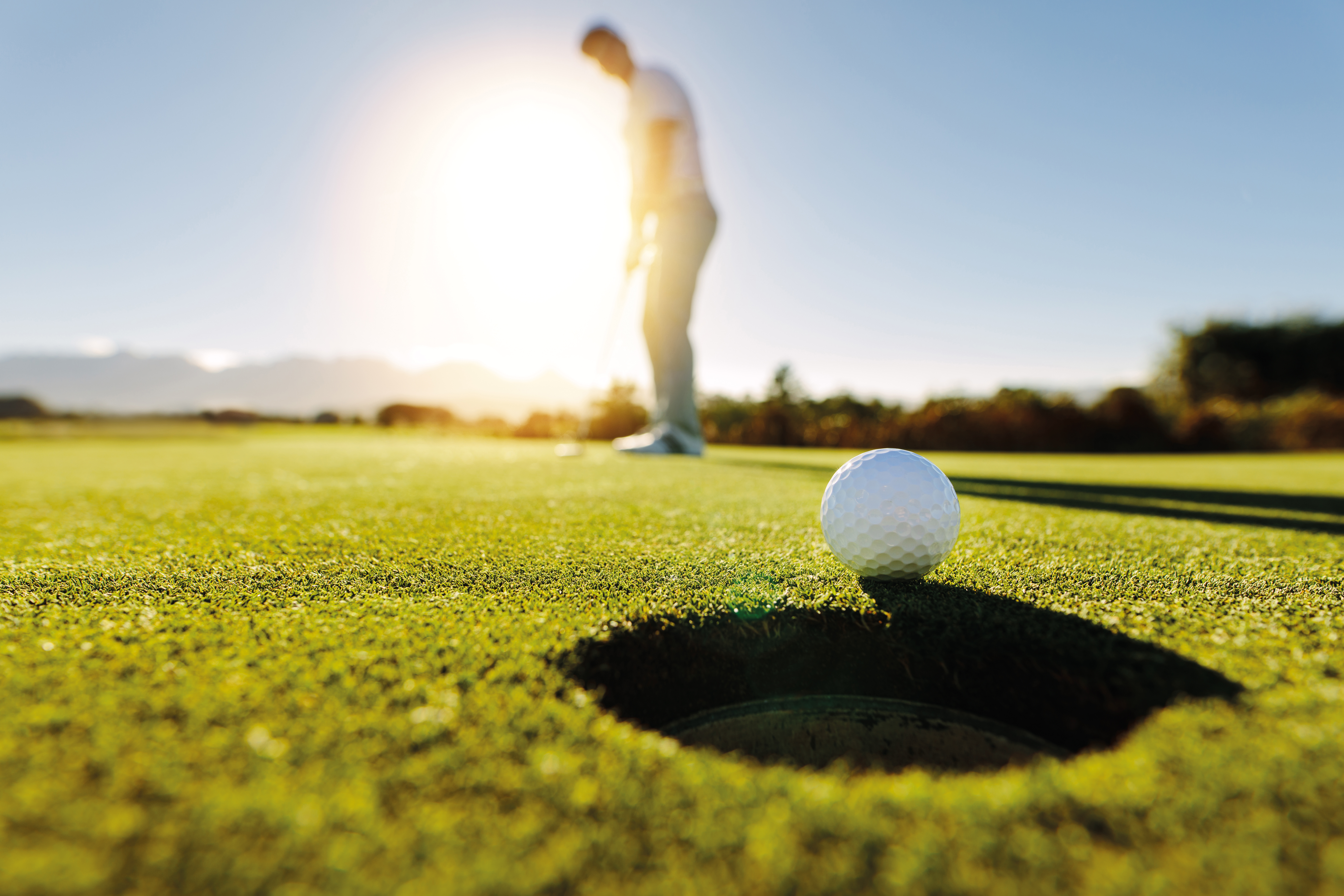Michelle Baker is the CEO of the Melanoma Fund and the creator of Slip! Slap! Swing! Here she gets under the skin of sun protection, and how our habits are feeding the silent killer in golf…
When it comes to looking after No.1, if you’re over 30 odds on you’d give hind teeth to look 10 years younger. If you’re over 50 your ‘blow out the candles’ wish is for good health, and when it comes to cancer, the idea is ‘unthinkable’.
Money may be up there, but when it comes to priorities, it’s our health and wellbeing that’s vital.As a result, particularly since Covid, many of us practice good lifestyle habits to ensure we look better and avoid illness and disease.
We brush our teeth, eat well, try to avoid too much alcohol, get seven hours sleep, we protect our mental health. Why is it then that many of us still struggle with the habit of protecting our skin against the sun, especially if you play a sport that sees you out in it during the summer?
Ask any GP or dermatologist how many golfers they see with skin cancer, and you’ll get a similar response; ‘far too many’. Although it’s a reasonable enough request, with a convincing rationale, protecting skin from sunburn, early ageing and skin cancer is a habit that only a few golfers I have come across have in their lockers, or regard as important.
To get to the root cause, for many it boils down to habits we take from childhood. Even 30 years ago, our parents understood that fluoride protected our teeth, and made sure we brushed twice a day, they sent us up to bed early and knew the value of a good education, but many misunderstood the risk of skin cancer and sun damage. Most of us were sent out without sunscreen, instead soothing the resulting sunburn with calamine lotion. Sound familiar?
Take a moment and imagine the state of your teeth in 10 years if you didn’t brush twice a day. Now your skin if you failed to protect it from the sun, or, how great it would look if you treated it like you do your teeth?
Many of us still play Russian roulette with our own skin, and purposely neglect sun protection, finding it difficult to challenge the ingrained idea that ‘the sun is good for our skin’, as we want to believe it is.
Despite the overwhelming body of research, a survey undertaken by the Melanoma Fund, revealed that:
- 42% of golfers use sunscreen when the weather required it
- 72% never reapplied it when on the fairway
- 30% admitting they avoid sun protection, in favour of a tan
Undeniably the sun feels great, and a tan can look healthy (when you’re young) and so we come up with lots of excuses such as:
“I love to tan”
“My skin is seasoned”
“I’m not getting skin cancer!”
“I avoid a greasy sport grip”
“I never use lotions!”
“I simply forget”
“I wear it abroad but not in the UK”
“I use it on my face but not on my body”
“I’ve got it on” (you haven’t)
But who are we kidding? With sunburn doubling the risk of melanoma in later life, there is no wonder that incidence of this most dangerous form of skin cancer is increasing faster than any other cancer in the UK, and figures are doubling every 10 years.
Check it out!
When it comes to surviving skin cancer, sun protection is really only half the story. Although dermatologists recommend a monthly check, only a handful of us do this, or would know what to look out for if we did.
A big factor here is denial and fear. Not wanting to find something dodgy and putting it off until another time is quite simply killing too many men. If caught early, melanoma, and most skin cancers can be successfully treated, however men tend to check their skin less frequently than women, and when they do, there may be a long gap between spotting something suspicious, and visiting a GP, and the difference can be deadly.
Melanoma deaths have been increasing dramatically in the UK with death rates in men more than three times higher now than they were in the 70s, which can be explained by a reluctance to check, leading to a late diagnosis, heightening the chances of the cancer spreading to other organs.
This is another routine that most of us were not taught but as we age, it is something we should be all over. The best place to start creating a new routine is by getting to know (and love) the skin you’re wrapped in. Get naked and take a good long look at it. Note how the sun has affected it, how moley you are, review your scars, wrinkles, the smoothness of it, the roughness, take it ALL in – it’s amazing and unique to you.
You can do this whilst brushing your teeth, filing your nails, rubbing in body lotion, stretching – simply tagging this new awareness onto a regular routine. The better you know your skin, the more likely you are to spot changes in moles, new spots, itchy marks and even damage, that will encourage you to perceive it in a more personal way, and ultimately to protect it.
With this in place, it’s time to take it to the next stage, and that means understanding how to spot something suspicious. Learn where your moles and lesions are, and their usual look and feel. Check for anything new or changing, such as a:
- New mole (that looks different from your other moles)
- New red or darker colour flaky patch that may be a little raised
- Change in the size, shape, colour, or feel of a mole
- Sore that doesn’t heal
- New flesh-coloured firm bump
Trust your instincts. If you find anything that worries you, however insignificant it may appear, make an appointment to see your GP immediately.
Creating a sun protection and skin check habit is so important and as with any routine, once it’s in place, it becomes second nature, it is never too late to start .
For further information on getting your club sun protection accredited to the Slip! Slap! Swing! campaign visit www.melanoma-fund.co.uk.
SLIP! SLAP! SWING!
Created specifically for golf, the campaign was launched in 2019 and quickly generated support from every golf organisation in the UK, including Golf England, The PGA and the R&A.
By 2020 over 500 golf clubs signed up, evidencing a real desire for awareness. This year the campaign has a new format, with accreditation requiring a small subscription fee to not only help the charity roll out the campaign, but also to provide value, encouraging action and implementation, because without that, there’s no impact.
Accreditation will save you time on creating awareness as all the hard work has been done. On signing up you’ll receive a toolkit of materials to help you raise awareness in your club or at your tournaments, actions that can be carried out by a club member or one of your team.
With skin cancer rife in sport, especially golf, the question is if not, why not?
Why golf?
Studies have shown that professional golfers receive over 200 times the suggested amount of sun exposure in a day. Even recreational golfers can get over 5 times the amount of recommended sun exposure in a single hour.
WHEN: A round can lead to prolonged sun exposure when UV rays are strongest
WHERE: Courses provide little shade, and highly reflective surfaces
HOW: Golfers tend to avoid reapplying sunscreen to avoid a ‘greasy grip’
WHY: Skin cancer commonly affects golfers and greenkeepe



